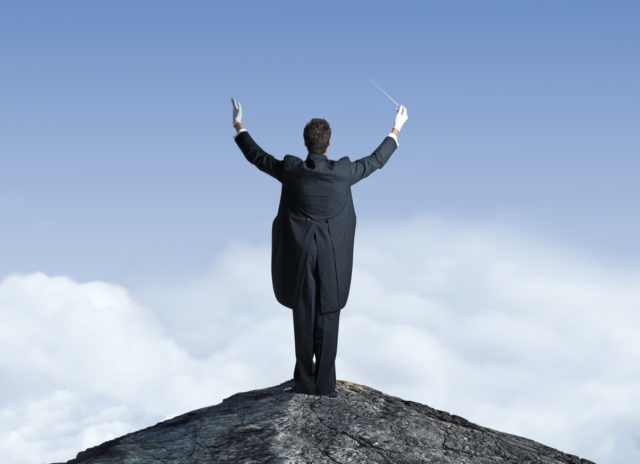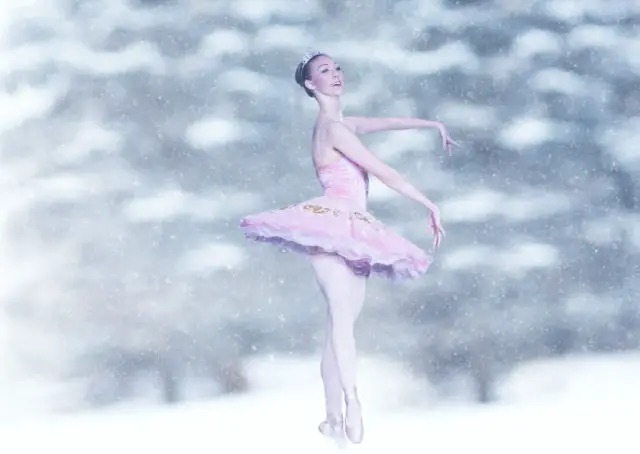
(This week is the 15th installment of the book, “The Band Director’s Lessons About Life”, which TCRN is publishing as a series during 2020. This week, band director and spiritual author Donald Lee relates a parable about how creativity is part of our divine heritage. For a complete listing of previous episodes in this series, click here.)
Creativity is more than just being different. Anybody can play weird; that’s easy. What’s hard is to be as simple as Bach. Making the simple, awesomely simple, that’s creativity.
CHARLES MINGUS
(Twentieth-century American jazz musician and composer)
“That was pretty good, guys. You played most of the notes and rhythms correctly. But something was missing, wasn’t it? It didn’t quite come alive. Remember, we are in the business of creating music.”
“The composer created it. We’re just playing it,” Jeremy inserted.
“Yes and no,” I replied. “Certainly, the composer did create it. But music is an aural art form—it’s sound. The composer created the sound in his own mind and then wrote it down so we could later ‘re-create’ it. What do you think Tchaikovsky really heard in his mind, and how can we re-create that?”

The high school band was working on a collection of melodies from The Nutcracker for our upcoming Christmas concert. The “Dance of the Sugar Plum Fairy” was not sounding as “fairyish” as I wanted. It didn’t have that light, dancing quality I think Tchaikovsky intended. It sounded more like mosquitoes and magpies than sugar-plum fairies. Twyla offered a suggestion.
“Maybe it should be more staccato.”
“I think that’s a good idea, Twyla. What I’ve heard from the band so far sounds like sasquatches tromping through the Northern Alberta spruce forest.”
As I said that, I stomped back and forth in front of the band.
“Whereas sugar plum fairies would dance lightly and spritely, with sweet little wings and tutus.”
I did my best imitation of a ballet-dancing sugar plum fairy, prancing on my tiptoes. The students found my attempt rather amusing and likely a bit unseemly.
“Can we take it again from measure forty-eight and see if we can create the sugar plum fairy right here at Glenmary School? Do your best at channeling your inner sugar plum fairy.”
This time the students did a much better job. It’s amazing how effective it is to get a mental picture of what you want to create.
“You did it! You created the sugar plum fairy.”
“We’re still just playing music,” Jeremy lamented. “We’re not really creating anything.”
“Creating or re-creating? There’s a fine line between them, Jeremy. A few moments ago, this music by Tchaikovsky didn’t exist here. It had existed, or manifested, elsewhere in the past, but not here and now. By playing the “Dance of the Sugar Plum Fairy,” we re-created the music that was unknown to you before, or only a memory. Now it exists actively in this room and in our minds. That’s how music is created. That’s how everything is created.
You see, what exists in our minds truly does exist. You can hear it in your mind—we call that audiation. You can see it in your mind—we call that visualization. That’s why we say that mind is the builder. Everything, from a momentary emotion to a great symphony, is created first in our minds. It must exist in our minds before we can make it exist in the real world—before we can manifest it in the material world.
“The desire and ability to create is perhaps the most important distinguishing characteristic of our species. No other species on this planet creates things on anywhere near the scale we do. It’s a sign of our immanent divinity—God within us. For God is the Great Creator who created everything, including us. And he created us in his image and likeness. Our very nature is creative. It comes from our soul—part of the spiritual gift of God to each one of us. He has made us co-creators with him. It’s no surprise, then, that we tend to be happiest when we are creating.
“So, while you might think you are just playing music, you are indeed creating music—which probably came from the Divine in the first place. Most creative people have the sense that what they create comes not from them but through them. We are the instrument. The music comes not from us but from the Great Composer, who plays through us. When we create anything, we are in a sense connecting with the Divine and allowing the Divine to flow through us and out into the material world. This connects us with the Divine. Perhaps that’s why creating things is so satisfying for us humans. Our hearts come closer to the heart of God.
Reflection
We are nearly through our preparation stage. What “improved self” do you want to create? We humans create. It’s an integral and unavoidable part of our Divine nature. The creative process works through thoughts, words, and deeds. Every thought that enters our mind is creative. Whether the thought is negative, such as “I’m useless” or positive, such as “I can do that,” that thought helps to create our experience of reality. The words we speak express our thoughts and take the creative process to a more powerful level. Then we act—usually following up on what we have earlier thought and said—and then our creation becomes manifest in the physical world.
What reality do you want to create for yourself and our world? What is your vision? Make sure your thoughts, words, and deeds align with that vision, for thoughts are real. Mind is the builder. And we create the experience that we think, speak, and do.

Donald Lee is a spiritual author and speaker. This article is part of a weekly series for 2020 in which TCRN is publishing his inspirational book, The Band Director’s Lessons About Life: Volume 1 – 50 Parables on Life’s Performance Cycle, in serial form – one parable per week. You can learn more about the author at his website: www.ComingHomeSpirit.com, or order a copy of his complete book on Amazon, or get his free mini eBook and sign up for his weekly blog. Follow Donald on Facebook.

